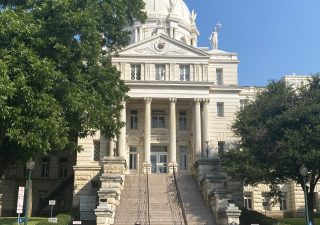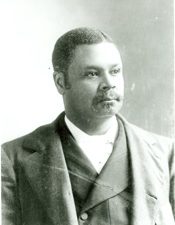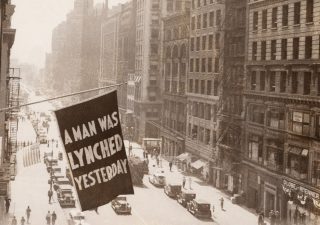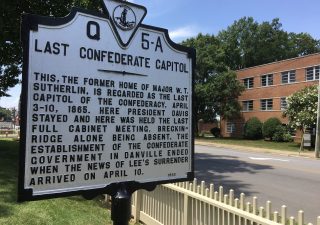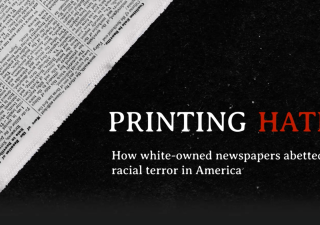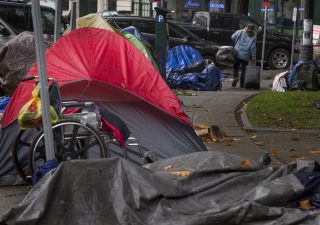In Waco, Texas, up to 15,000 white men, women and children, elected officials and law enforcement would gather to watch public lynchings of Black men.
Anti-lynching laws have not passed Congress in 130 years
In January 1900, George Henry White, the only Black man within the U.S. House, proposed a bill to ban lynching. During his speech, he was interrupted and the bill never went past the House Judiciary Committee.
Newspapers printed hate for scores of years, leading to racist violence
Over several decades, hundreds of white-owned newspapers across the U.S. fueled racist hate crimes against Black Americans.
In the 1880s, election fraud and a massacre stopped Black progress
White supremacists and newspapers conspired to take down a progressive, integrated party in Danville, Virginia.
Printing Hate: How white-owned newspapers incited racial terror in America
From the end of Reconstruction to 1940, newspapers were the most powerful news medium in the U.S. But many printed headlines and stories that fueled racial hate, inciting massacres and lynching of Black citizens. In 36 stories, students from UMD, the University of Arkansas and five historically Black colleges and universities — Morgan State University, Howard University, North Carolina Agricultural & Technical State University, Hampton University and Morehouse College — investigated the role of newspapers that still exist today in some form. They also created an interactive database using tens of thousands of records from the Library of Congress that allows readers to look up coverage in their own backyards. They profiled some of the courageous Black journalists who provided a counternarrative to the racist white press. And they created a mini-documentary about the massacre of Black residents of Elaine, Arkansas, after sharecroppers tried to get better prices for their cotton.
Essential and Exposed
At the height of the pandemic, workplace safety systems often failed to protect workers considered essential to keeping key goods and services flowing. This series examined those failures by telling the stories of workers at Walmart, the nation’s largest employer; of foreign workers brought legally to the U.S. to pick crabs and process oysters in the Mid-Atlantic; of poultry workers in Arkansas’ chicken and turkey processors; and of health department workers who were overwhelmed by the demands on their offices in Massachusetts. The package, a collaboration among UMD, Boston University, the University of Arkansas and Stanford University, also includes a podcast telling the stories of airport workers, many behind the scenes, who risked their health to keep airplanes flying.
About Essential and Exposed
These stories were produced by the Howard Center for Investigative Journalism, part of the Philip Merrill College of Journalism at the University of Maryland, in collaboration with journalists from Boston University, the University of Arkansas and Stanford University. The mission…
Settlement in Idaho case strengthens homeless protections
Homeless people in Boise with nowhere else to sleep can no longer be arrested for doing so in public, under the terms of the settlement announced by the city and plaintiffs.
Public housing, the last refuge for the poor, threatens to kick out tenants for small debts
Public housing is supposed to be a solution to homelessness, not a cause of it. The Howard Center for Investigative Journalism analyzed four years of eviction data to find out why five public-housing authorities are taking so many of their clients to court.

